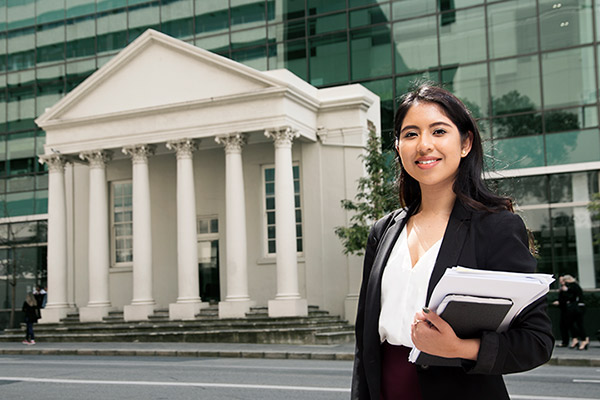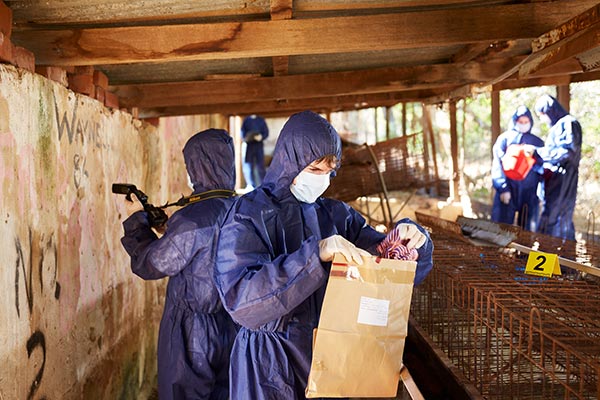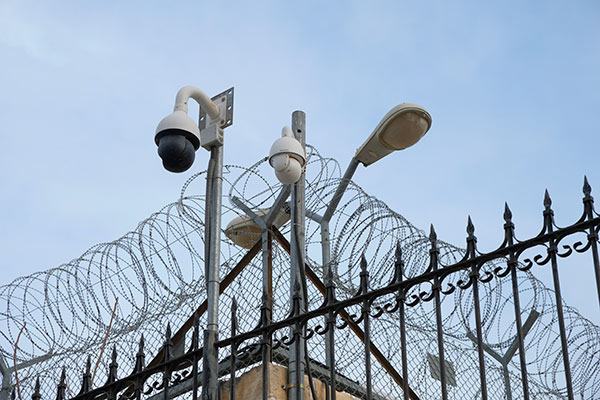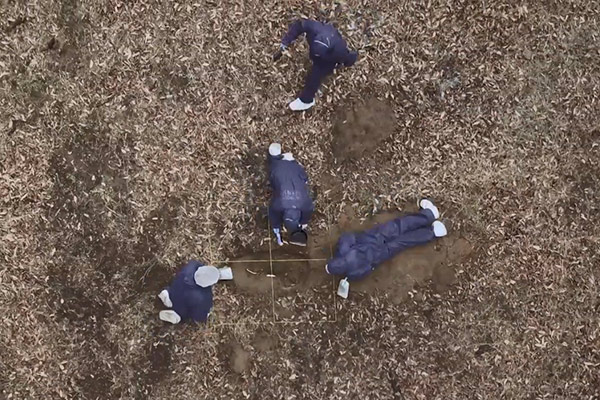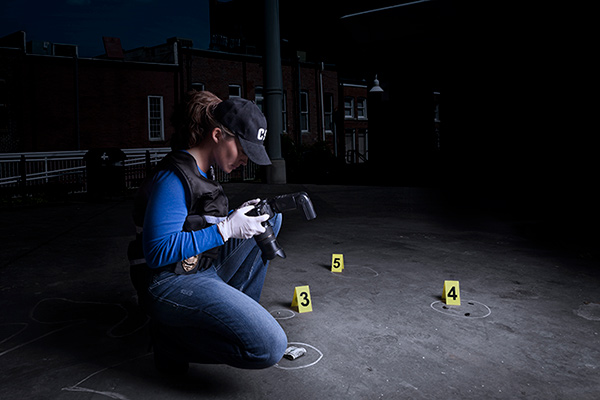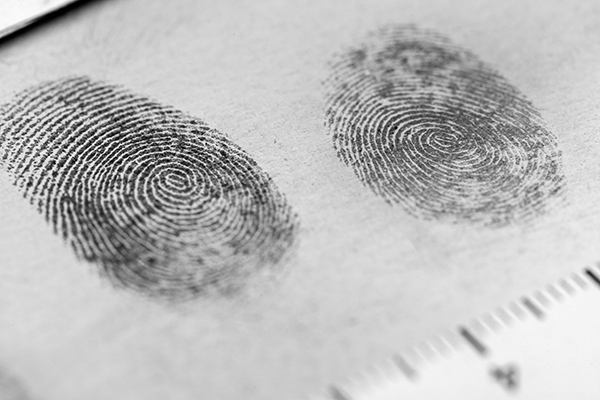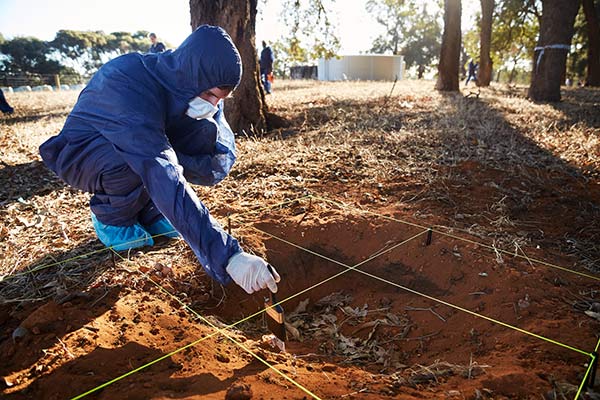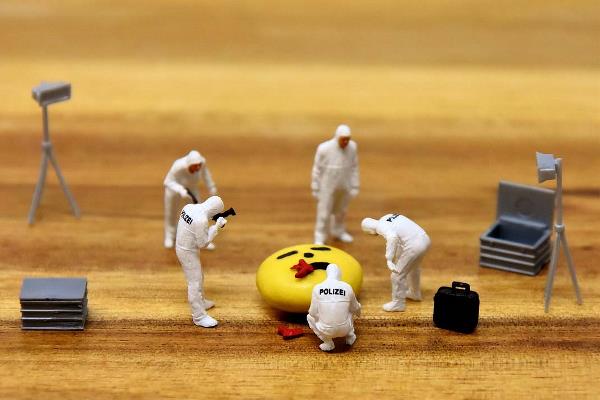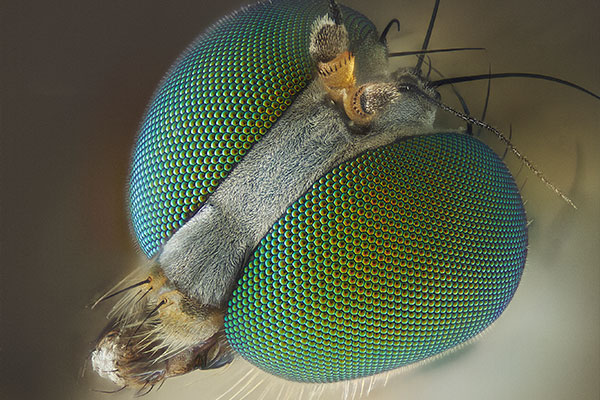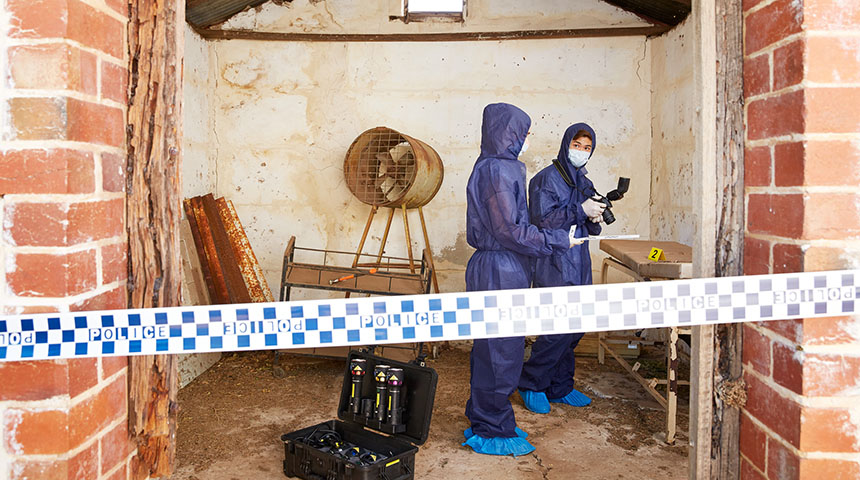
Can’t decide between a career in forensics or criminology? Find out more about the difference between the two and how you can uniquely study both together.
What's the difference between forensics and criminology?
With a heavy focus on crime scene investigation, studying a Forensic Biology and Toxicology will introduce you to a number of specialist crime-busting skills.
These include the ability to analyse DNA, fingerprints and bloodstain patterns, in addition to determining cause of death and identifying skeletal remains.
According to Murdoch Lecturer and Forensic Scientist, Brendan Chapman, teachings of forensic science are centred on obtaining a successful conviction in court.
"Forensics is rooted in the conventional sciences as applied to criminal proceedings. Everything we do as forensic scientists is for the courtroom as the ultimate endgame."
Criminology is the study of the criminal justice system, from policing and prevention to prison and release. Criminology covers many different industries including forensics, law, psychology, sociology and more. In a Bachelor of Criminology you can choose to major in: criminal behaviour, white collar and corporate crime, legal studies or crime science.
Criminology examines the reasons behind why people commit offences, how to reduce and prevent crime, and how to help both victims and offenders involved in the criminal justice system.
Like forensics, criminology is a science, it's just a lot more interpretive... Criminology encompasses a broad array of disciplines to understand and prevent crime.”
Advice for budding forensic scientists and criminologists
For students pursuing forensics, Brendan recommends students ensure they get a firm foundation of the basic sciences before trying to rush in to the excitement of forensic and crime scene work.
"Some of the best forensic scientists I know are those that have a solid understanding of the concepts behind various forensic analyses. I tell my students in lab classes that if you want to follow a recipe blindly, become a cook. A true scientist has an understanding of the reasons behind what they’re doing."
In a similar vein, senior lecturer David Keatley recommends taking in information and knowledge from different study areas as reference, in particular psychology, information technology and sociology.
"Understanding the criminal justice system stems from understanding people - their motivations, beliefs, and behaviours. So, take in as much information as you can and see if it can be re-applied to particular cases.
"Beware of jumping to conclusions and seeking to prove hypotheses about certain crimes or situations."
Where forensics and criminology intersect
Can't decide whether you'd like to pursue forensics or criminology? In the words of everyone's favourite taco girl, "¿Por qué no los dos?"
We are proud to offer a combined Bachelor of Criminology and Bachelor of Science, the only degree in Australia allowing you to combine both areas into one degree.
This degree will allow you to gain not only an understanding of the motivations and patterns of criminal behaviour in Australia, but also science that helps solve major crime and the justice system governing the country.
Effectively doubling your career opportunities, our graduates have the ability to step into two different fields or pursue incredibly unique professions.
For international student Lisa Walkes, a degree in forensic science was essential, as her ultimate goal is help fight injustice around the world.
"Forensic science has great implications, especially when it comes to the weight of evidence presented in court. I hope that I will somehow be able to improve the field in such a way as to reduce the number of wrongful convictions due to errors in forensic testing."
Learn more about studying at Murdoch as an international student.
For academics, David and Brendan, the combination of their expertise of criminal behaviour and forensic evidence is also used to solve real cold cases.
"Our cold case group is unique, especially given that Brendan and I work with detectives on major crimes and cases, which is a privilege for us and something that our combined approach of forensics and criminology allows us to do,” says David.

